Resources
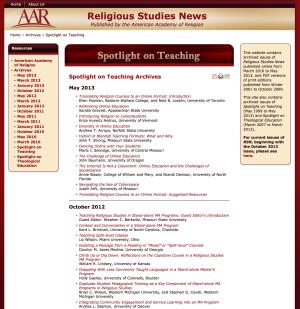
Journal Issue. Full text is available online.
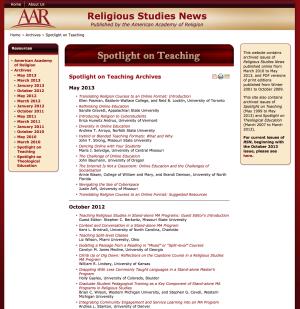
Journal Issue. Full text is available online.
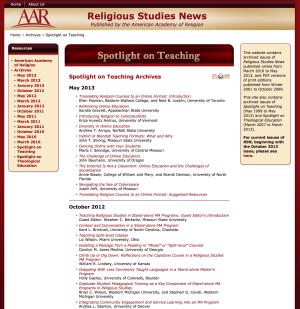
Journal Issue. Full text is available online.
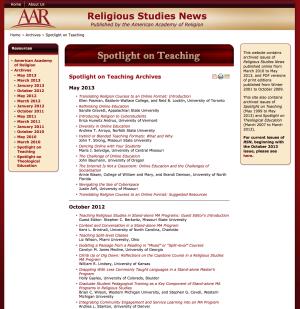
Journal Issue. Full text is available online.
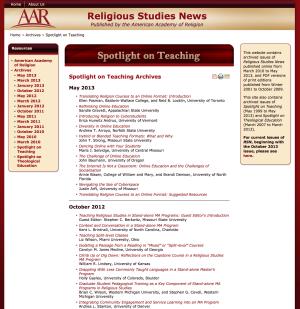
Journal Issue. (This issue, and all "Spotlight on Teaching" issues prior to 1999, are not available on the AAR website.)
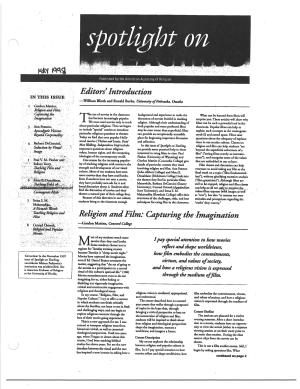
Journal Issue. (This issue, and all "Spotlight on Teaching" issues prior to 1999, are not available on the AAR website.)
Journal Issue. (This issue, and all "Spotlight on Teaching" issues prior to 1999, are not available on the AAR website.)
Based on the Situational Leadership model of Hersey and Blanchard, the Staged Self-Directed Learning Model proposes that learners advance through stages of increasing self-direction and that teachers can help or hinder that development. Good teaching matches the learner's stage of self-direction and helps the learner advance toward greater self-direction. Specific methods are proposed for teaching students at each stage, although many different teaching styles are good when appropriately applied. Several pedagogical difficulties are explained as mismatches between teacher style and learner stage, especially the mismatch between a student needing direction and a non-directive teacher. The model is applied to a course, a single class, and the overall curriculum.
The article is a theological reflection on the vocation of university teaching that describes the heart of the matter of what faculty do in the classroom. The author draws on personal narrative, social-psychological analyses of how insight occurs and contexts for insights are constructed, and sociological accounts of shifts that have altered significantly the context of university teaching and learning at the cusp of the millennium to make her case. She argues that the vocation of university teaching involves creating spaces of gracious play that are potentially transformative for students and faculty. Creating such spaces, however, draws faculty into an asceticism that can be understood as a spiritual path. The article is a revision of the author's 1999 St. Elizabeth Seton Lecture at the College of Mount St. Joseph, Cincinnati, Ohio.